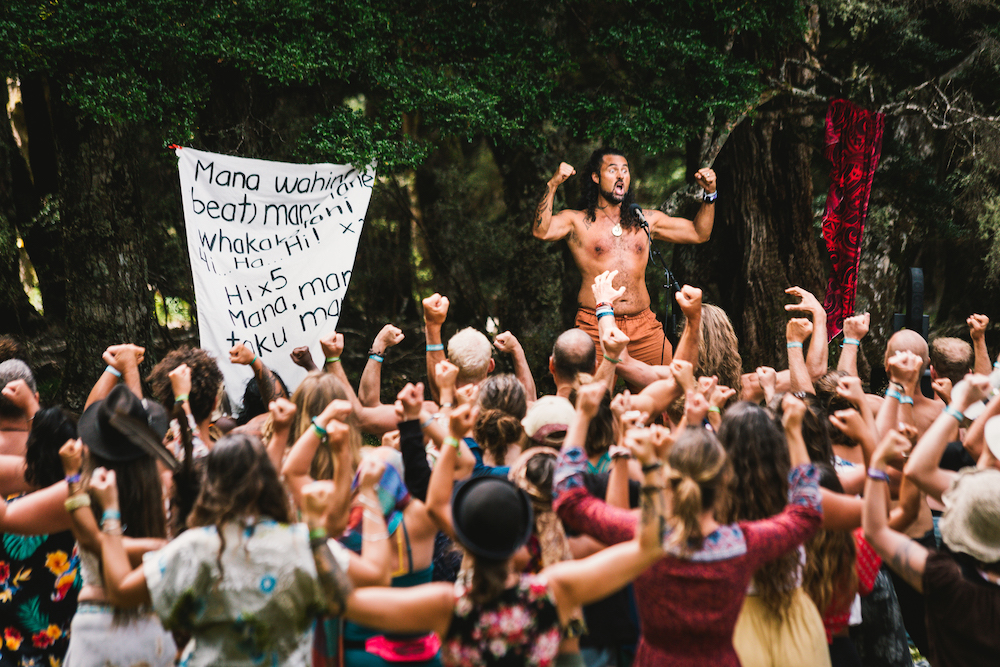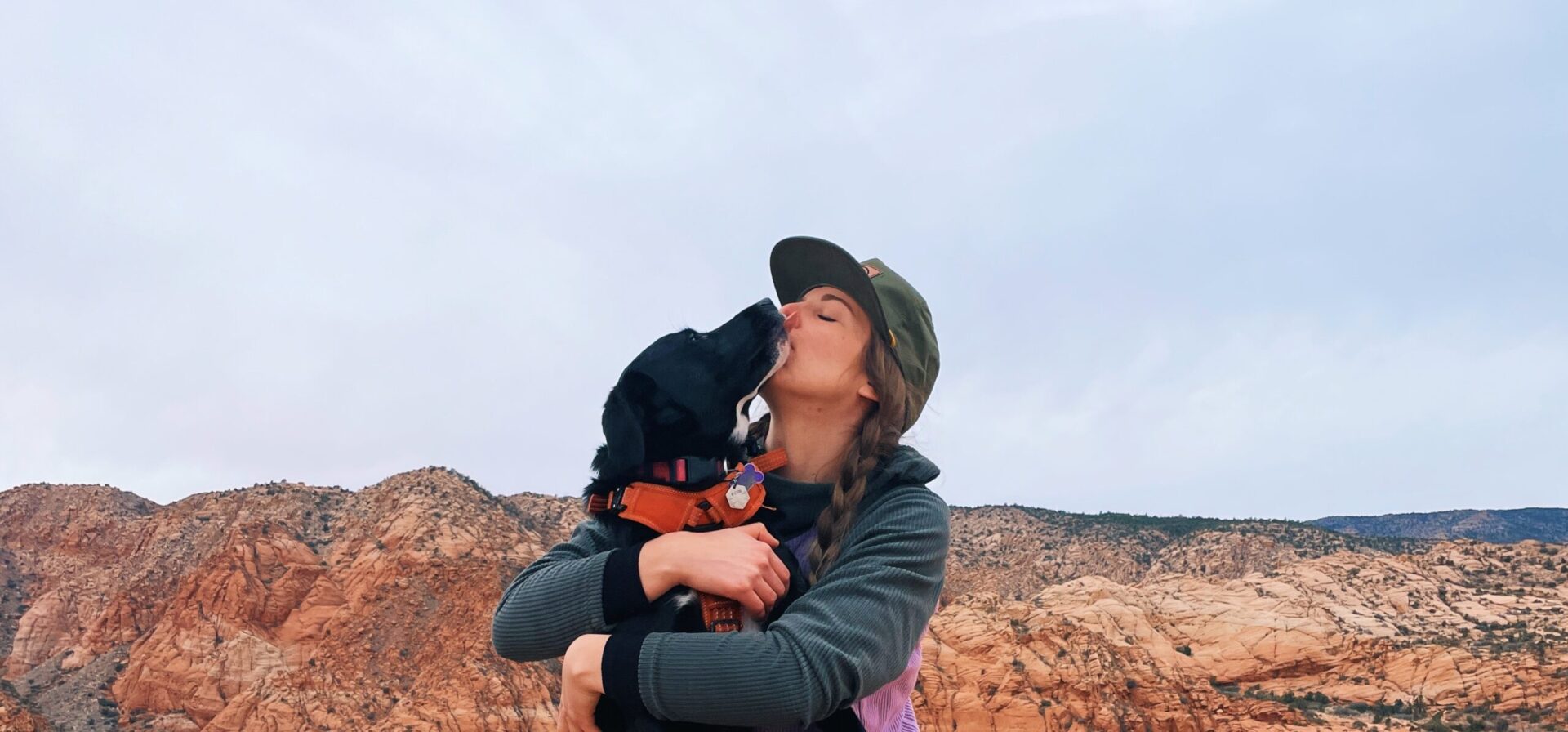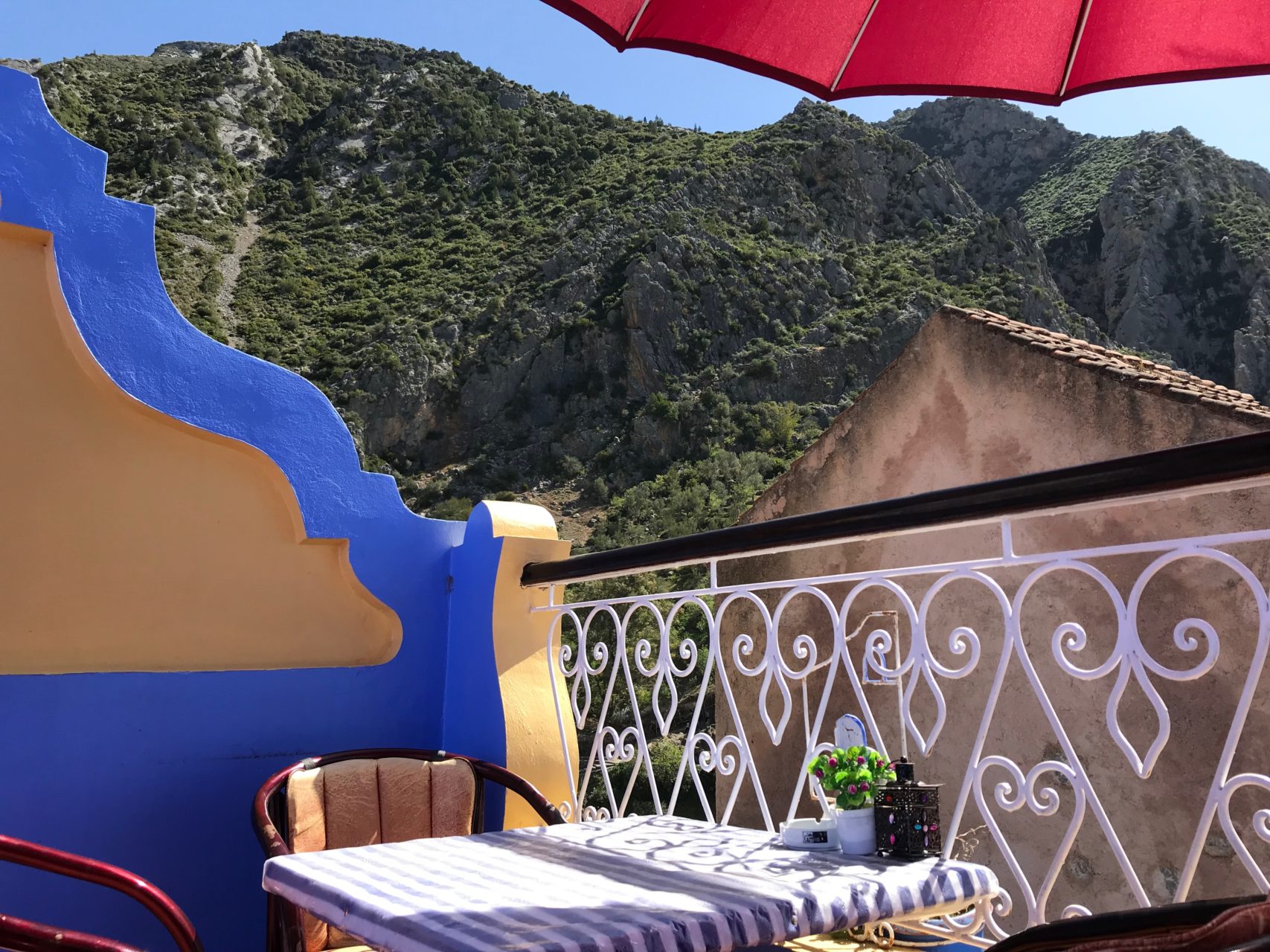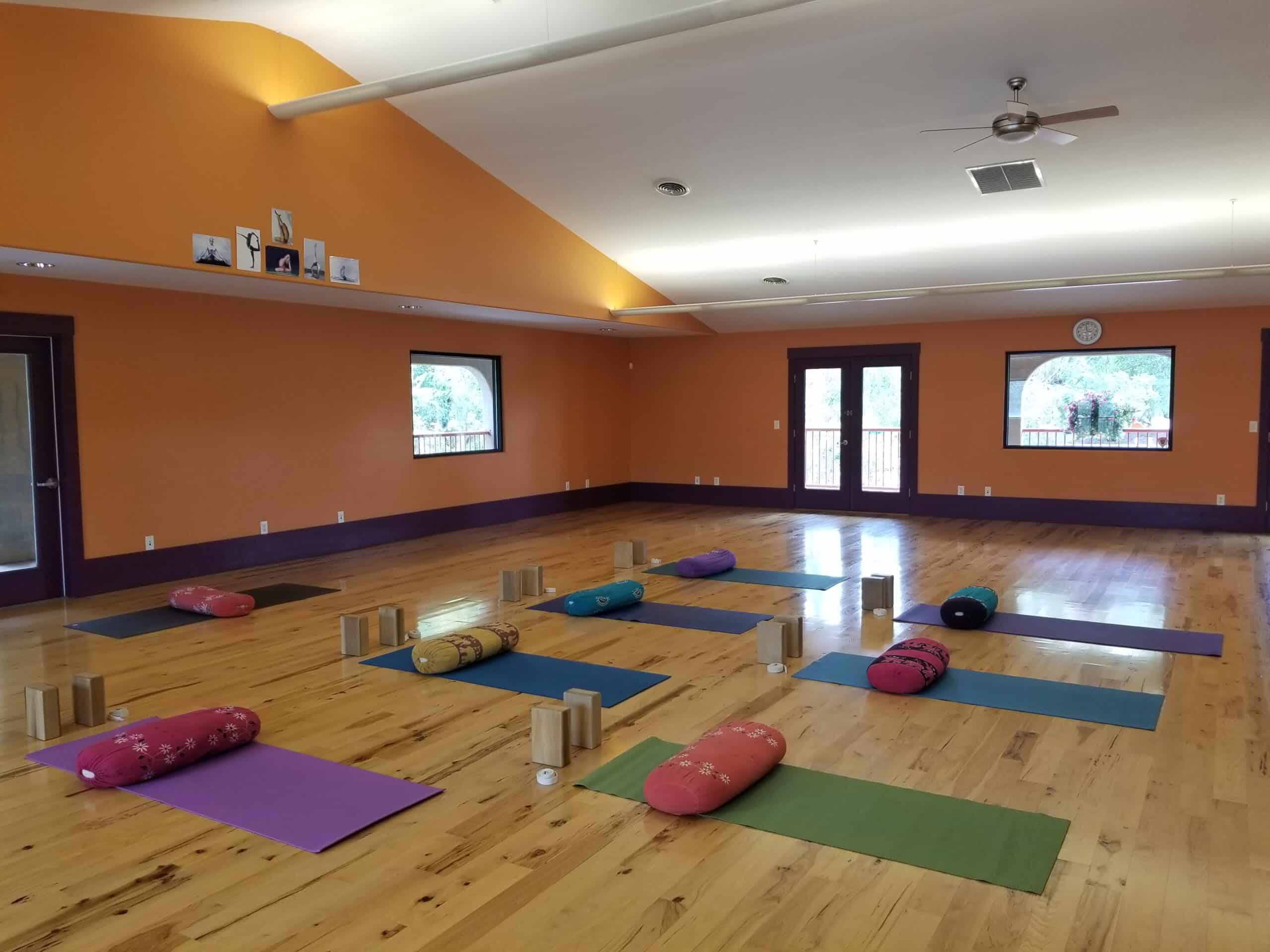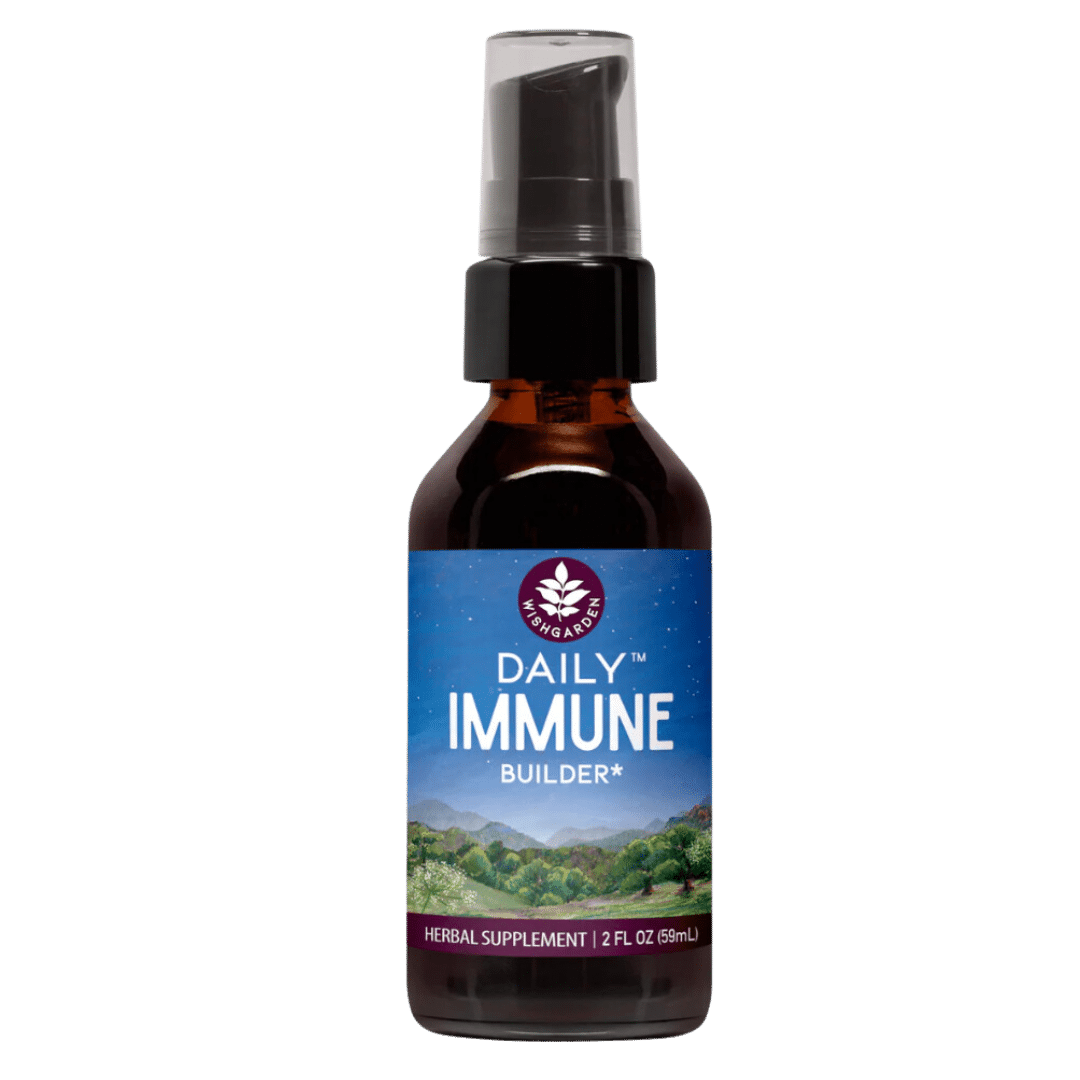New Zealand Summer Festivals Alive + Thriving : The Country That Didn’t Skip A Beat | By Kaitlin Emig
While much of the world wore masks throughout last winter in the Northern Hemisphere, people in New Zealand dressed in costume, painted their faces and joined together for a summer of festivals.
This celebration of “normal” life has given everyone watching from around the world a glimpse that this too will pass. May this give you hope for the time when traveling around the world, gathering with friends and dancing to music all night will soon be around the corner.
I caught up with friends and cohorts from my time dancing barefoot in a New Zealand paddock to hear how the festival season has been alive and thriving, but also to ask why these festivals are unique compared to anywhere else. Everyone answered with similar thoughts about the smaller size and beautiful settings these camping excursions take place in. But is there something deeper within the roots of the culture that sets New Zealand festivals apart?
Photographer Tim Shoultz weighed in on this matter. “One of my favorite parts about New Zealand festivals is the opening ceremony,” he says. The Maori culture is represented in a pōwhiri (traditional welcoming to a marae or meeting house) as a welcoming onto the land where guests are invited to show they come in peace, to make an offering and to pay respect to the land and ancestors. Generally, several Te Reo Maori (traditional language) blessings are said and an intention is set for the festival, Shoultz describes.
The intentionality behind a reason to gather, live, love and be present warms Shoultz’s heart and provides a glimpse of how the festival community enacts a potential for what can be. “Festivals are a fulfillment of the ideal environment for love, creativity and compassion that guide our efforts into the betterment or evolution of our species by remembering our true purpose of being stewards to Mother Earth, or Papatūānuku, or Pachamama — our home,” Shoultz believes.
Shoultz is originally from Alabama and has attended medium to large festivals in America, but finds their sheer size doesn’t appeal to him anymore. Since arriving in New Zealand in 2017, he has attended, volunteered and been a media coordinator at seven festivals ranging in size. He is currently on a three-year essential skills visa while he works for a retreat center outside of Queenstown.
For acrobat and fire spinner Nikita Rose, she is inspired by the New Zealand circus community and importance of play these festivals bring into her life. “I can’t describe the fire in my heart; this creative outlet allows me to explore with music, movement and community,” she explains.
Rose is grateful for her unique situation that allowed her to stay in the country while living out of her van and traveling to festivals. She is originally from New Jersey and first entered New Zealand on a working holiday visa then transitioned to a tourist visa to extend her stay. The New Zealand government automatically granted tourists who arrived before their borders closed a visitor status for the past year. For Rose, this meant the ability to perform, teach and attend eleven festivals sharing her love for acroyoga and spinning fire.
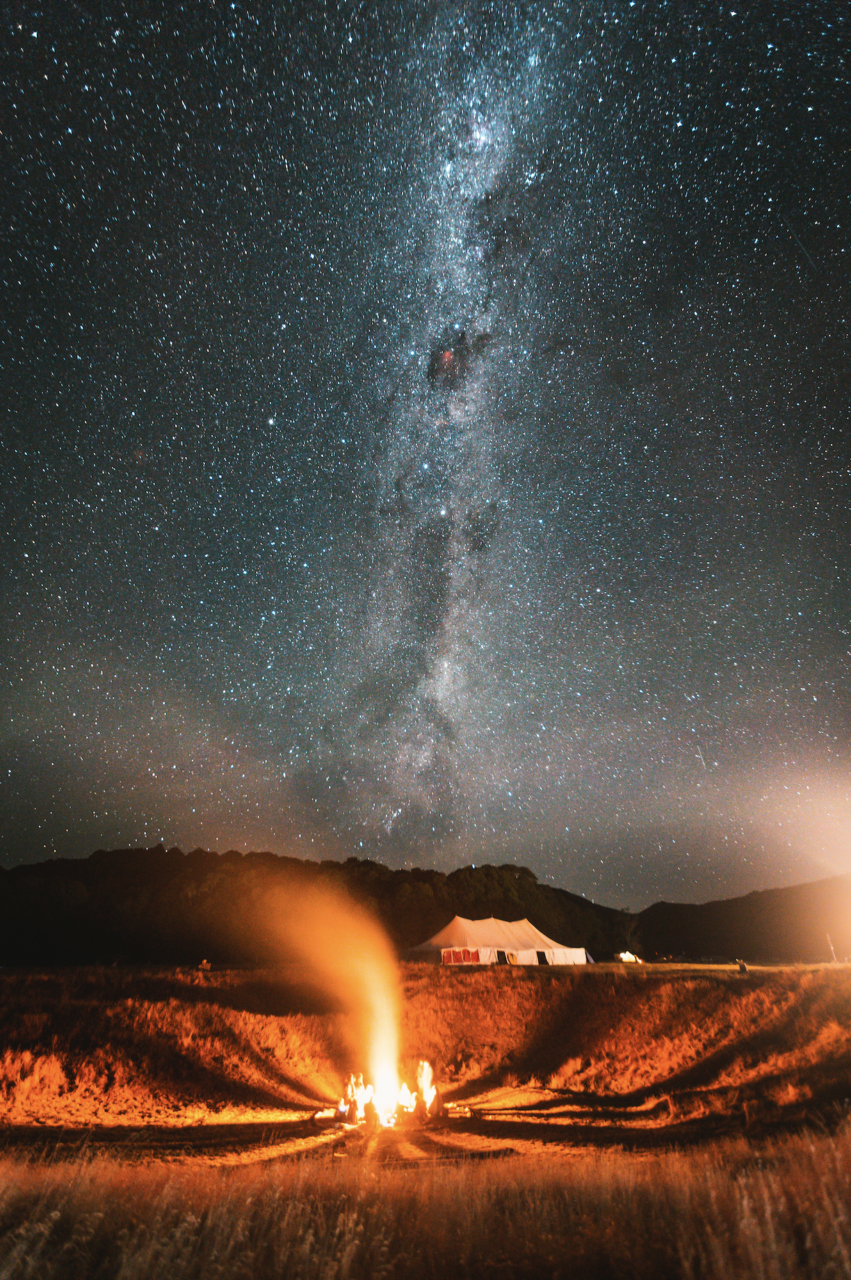
I, too, found the circus and fire spinning community enchanting and magical at festivals like Circulation and Autumn Arena in the South Island. Witnessing performers from around the world throw balls of fire around their bodies with grace, poise and power was exhilarating to watch. This culture of spinning originated from the Maori poi used in traditional performances of storytelling and singing.
Opportunities to learn about the Maori culture, environmental issues on the small islands or engage in meaningful dialogue through workshops are also present at festivals like Luminate, Relish and NZ Spirit Festival. The element of stewardship on the land is enacted by establishing a “no rubbish”’policy at some festivals. There is a shared responsibility to leave-no-trace at your campsites and within the festival, similar to the American Burning Man principals. Multiple festivals in New Zealand capture this gifting culture by making intentional space for everyone to share and co-create.
Californian photographer Jeffery Packard finds the alcohol-free festivals create a different dynamic. “There’s a sense of safety present which means there are more children and families, and there’s a completely different way that people act and interact throughout the day,” he says.
Shoultz agrees the intimate vibe created by a smaller and more conscious community attending the festivals allows for deeper connections. “Sometime festivals are just a couple of hundred people and by the end of the festival you know the whole tribe” he adds.
Packard who is also on an extended tourist visa thought there would be far more locals attending the festivals but found there to be a strong contingent of people from overseas still traveling the country. “It’s always fun seeing faces from other festivals and other years, and the locked borders amplify this effect,” he explains.
Ryan Ferris, a musician and Kiwi (native New Zealander) who has traveled to festivals around the world describes how festivals in his home country differ because of the stunning landscapes in which they are set. He explains that at some of the smaller festivals one can be within the native bush and rivers just as much as inside the festival. He adds there are two worlds to the festival scene in New Zealand — just like elsewhere. “Large festivals bring incredible music acts from around the world (except this summer) but are booze filled, while smaller ones create great principals, high quality production and amazing community,” he describes.
Ferris preformed at five festivals this summer with his band Beacon Bloom. He gives reference to the traditional names when asked where he is originally from, stating Otautahi or Christchurch which are in Aotearoa and New Zealand respectively. Ferris believes having only Kiwi acts this summer helped improve the discovery of local artists, allowing crowds to be more exploratory.
Local acts filled the ears of attendees and, as Shoultz explains, makes a less distracting atmosphere. “I tend to get more focused on who is playing music, so I don’t miss out, and less on just exploring the soundscape of the festival by letting my ears guide me,” Shoultz adds.
“Festivals are a great place for self-exploration with the festival as a facilitator and tool for that journey,” Shoultz says.
Whether you are into large performances, thought-provoking workshops, yoga classes with a scenic view or community kitchens serving up delicious meals day and night, there is a festival in New Zealand for you.
Photos by Federico Pagola.
Originally published in the Summer + Fall 2021 issue.
 Kaitlin Emig seeks adventure through mindful travel and outdoor pursuits. Her first oversees traveling experience as a teenager opened her worldview to everything beyond the rainbow. Growing up inKansas and studying English and Writing in Iowa, she was far from the mountains that truly called her. Once moving to Colorado to teach skiing and yoga, she felt in her element. Adventure still beckoned however and for the last three years she’s lived in New Zealand and British Columbia. Her goals of freelance writing to share her outdoor pursuits hasled her to this internship with Jaunt Media Collective, publishers of YOGA + Life.
Kaitlin Emig seeks adventure through mindful travel and outdoor pursuits. Her first oversees traveling experience as a teenager opened her worldview to everything beyond the rainbow. Growing up inKansas and studying English and Writing in Iowa, she was far from the mountains that truly called her. Once moving to Colorado to teach skiing and yoga, she felt in her element. Adventure still beckoned however and for the last three years she’s lived in New Zealand and British Columbia. Her goals of freelance writing to share her outdoor pursuits hasled her to this internship with Jaunt Media Collective, publishers of YOGA + Life.
Optimize your immune system with nourishing herbs such as Elderberry, Burdock, Nettles, Cleavers and Astragalus. Serve yourself up [...]
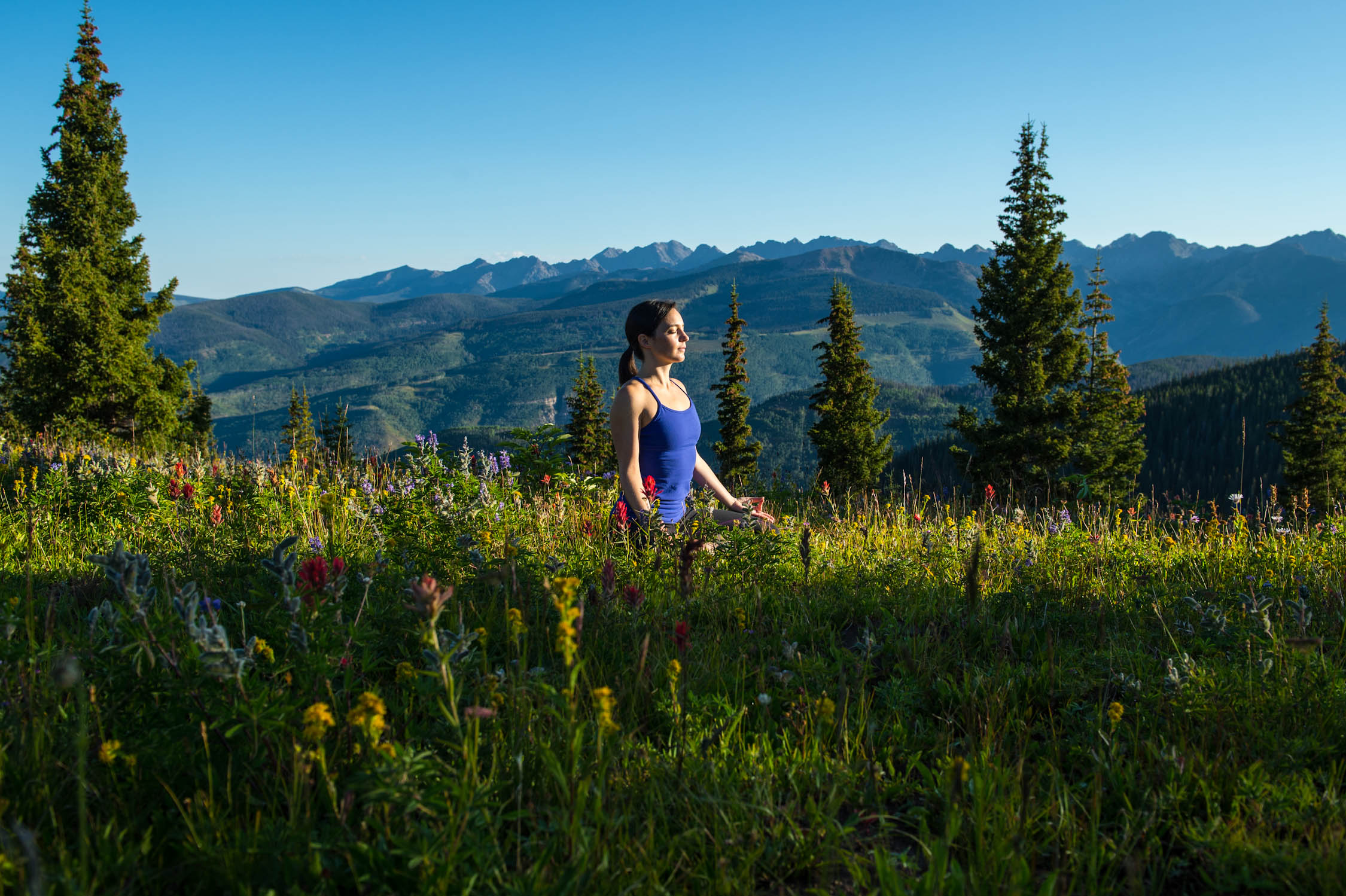
Subscribe to Our Tribe
Stay up to date with Y+L News, Events and special announcements.





